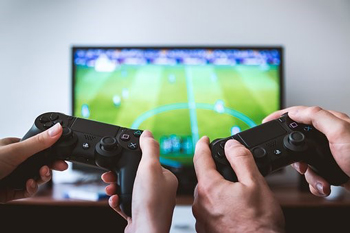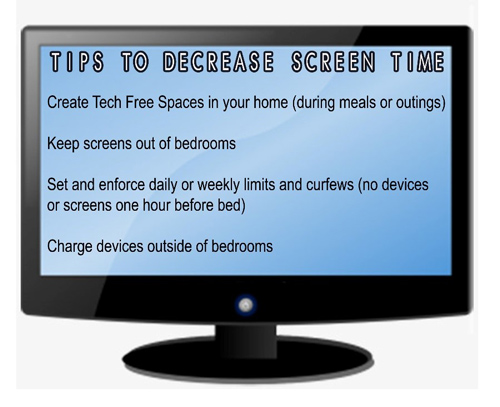
 “Put down the controller and come do your homework!” How many times as a parent have you had to shout this phrase? While finishing your homework may not rival the excitement of Minecraft or Fortnite, there are other activities that can be just as much fun, yet many parents often have trouble coaxing their children away from the lure of the screen. Why? Many medical professionals have asked this same question and have formulated some answers. WHO, The World Health Organization is now recognizing “Internet Gaming Disorder (IGD)” as a diagnosable mental condition. Presently, due to very limited research, many professionals don’t yet know how to treat the disorder and when treatment is available, it is often very expensive.
“Put down the controller and come do your homework!” How many times as a parent have you had to shout this phrase? While finishing your homework may not rival the excitement of Minecraft or Fortnite, there are other activities that can be just as much fun, yet many parents often have trouble coaxing their children away from the lure of the screen. Why? Many medical professionals have asked this same question and have formulated some answers. WHO, The World Health Organization is now recognizing “Internet Gaming Disorder (IGD)” as a diagnosable mental condition. Presently, due to very limited research, many professionals don’t yet know how to treat the disorder and when treatment is available, it is often very expensive.
Some providers are reluctant to introduce a new diagnosis because of lack of research. Many providers also note that some of the same symptoms show up with other behavior disorders. Obsessive type behaviors and categorizations are often present with many psychological conditions. So, as a parent, how can you determine if you should be alarmed about this? Luckily, The American Psychological Association has created a list of symptoms or behaviors to look for:
- Withdrawal symptoms when internet gaming is taken away (sadness, anxiety, irritability)
- Heavy focus on internet gaming
- Tolerance, the need to spend more time gaming
- Not being able to play less; unsuccessful attempts to quit playing
- Giving up other activities, and loss of interest in activities that were once enjoyed
- Continuing to play despite problems
- Deceiving family members or others about the amount of time spent on Internet gaming
- The use of Internet gaming to relieve negative moods, such as guilt or hopelessness
- Risk, having jeopardized or lost a job or relationship due to Internet gaming
 As a parent, if you can see at least five of the above behaviors, a child could be diagnosed with Internet Gaming Disorder and qualify for treatment under the new diagnosis.
As a parent, if you can see at least five of the above behaviors, a child could be diagnosed with Internet Gaming Disorder and qualify for treatment under the new diagnosis.
You may be asking, is there a way to prevent these behaviors or stop them before they develop into a disorder? Again, more research is needed, but the American Academy of Pediatrics (AAP) have suggested guidelines for the use of any type of screens for children. The AAP suggests the following:
It is important to note that disorders not only cause emotional changes, but physical health is at risk as well. Due to the sedentary nature of media and video games, doctors note that most people battling this particular affliction are also categorized with a high body mass index (BMI).  This can lead to further health problems such as diabetes, obesity, and high blood pressure.
This can lead to further health problems such as diabetes, obesity, and high blood pressure.
If you are concerned about your child’s gaming and think you see any of these traits, its best you make an appointment with your child’s physician to discuss your options for treatment. The physician can guide you in a good direction with assessment, treatment, referral and follow up, if needed.
If you are upset and feeling somewhat uneasy about your child’s gaming habits, but don’t think they yet rise to the level of addiction, know that prevention is always the best route to take. See the list of helpful tips on this page to keep the habits at a distance and discourage any further addictions from forming.
Most importantly, have conversations with your kids about devices and screen time. Explain why it is important to limit these activities and discuss the many benefits of other things your child can do independently or as a family. Work with your kids to develop a list of activities not involving screens. Here are some possible ideas kids may enjoy:
Play in the yard
Read a favorite book (as a family or independently)
Cook a meal together
Take a Class (sporting, craft, or another hobby)
Play a board or card game
Kids need to understand the benefits of screen time limits and how those limits affect their overall health. This can go a long way in helping to prevent Internet Gaming Disorder. You will also have the added benefit of knowing your children have exercised and sustained their minds in more creative ways. Creating joyful and pleasant memories may also be a very gratifying side effect.
If you would like more ideas for trading screen time with more productive family activities, contact Dynamis Learning Academy. Our professional tutors have decades of experience working with children and families. We can create a personalized solution for you and make family time more enjoyable!
